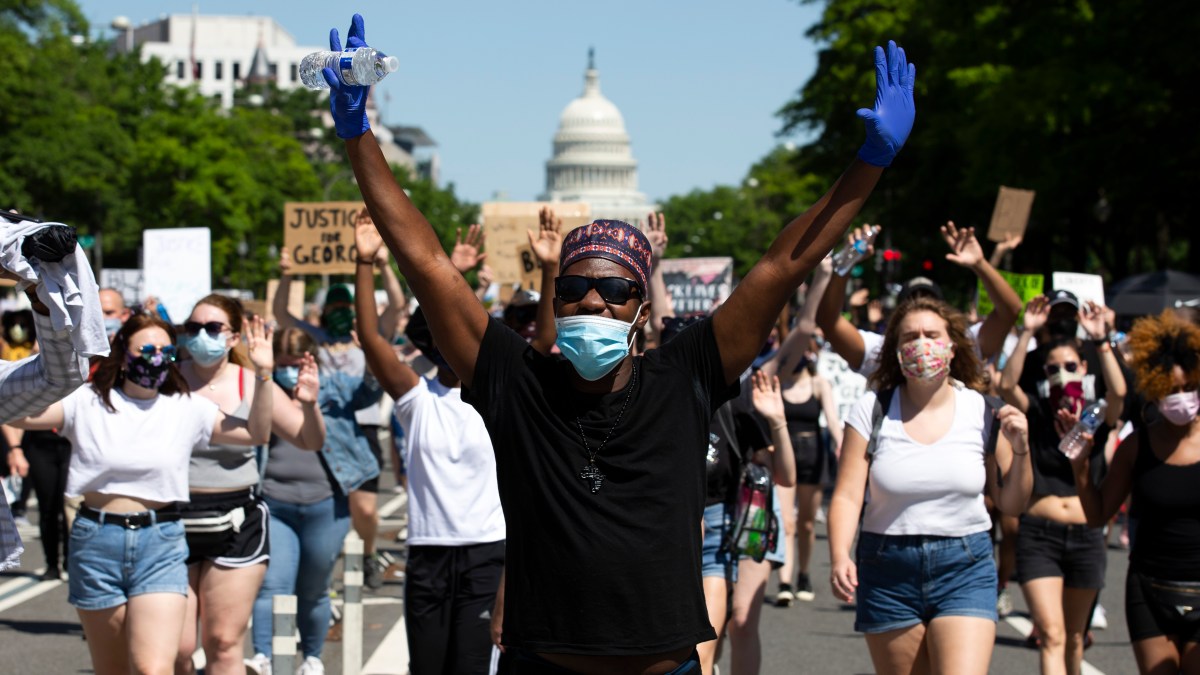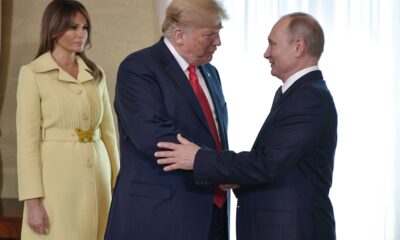Politics
Protests Erupt in U.S. as George Floyd’s Death Sparks Nationwide Outrage

The death of George Floyd on May 25, 2020, while in police custody in Minneapolis, ignited a wave of protests across the United States. By the end of May, cities were grappling with widespread demonstrations against systemic racism and police brutality. As local governments imposed curfews to manage the unrest, the situation underscored the tension between public safety and the right to protest.
In Washington, D.C., the final weekend of May provided a stark contrast to the prior weeks of pandemic-related restrictions. On May 29, Mayor Muriel Bowser announced the expiration of the city’s “stay-at-home” order, allowing residents to venture out freely once again. However, within 48 hours, the landscape shifted dramatically. By May 31, residents were ordered back into their homes as authorities enacted curfews in response to escalating violence during the protests.
The protests began peacefully, with thousands gathering to call for justice for Floyd. Yet, as the nights progressed, tensions heightened. In several cities, including Washington, D.C., law enforcement used rubber bullets and tear gas to disperse crowds. These measures sparked further outrage among demonstrators, who viewed them as a violation of their rights to assemble and express dissent.
On June 1, President Donald Trump made headlines when he walked to St. John’s Church near the White House for a photo opportunity, holding a Bible in front of the church. This act was met with significant backlash, as it occurred shortly after law enforcement had forcibly cleared peaceful protesters from the area to create a path for the President.
The protests and the government’s response reflect deeper societal issues that have been simmering for years. Many Americans were not only reacting to Floyd’s death but also voicing their frustrations over long-standing inequality and police misconduct. The juxtaposition of peaceful protests and aggressive law enforcement tactics raised questions about the appropriate balance between maintaining order and protecting civil liberties.
As demonstrations spread to cities nationwide, the calls for change became a rallying point for various social justice movements. Activists emphasized the need for comprehensive police reform and accountability measures, pushing for systemic changes that would address the roots of racial injustice.
The events of late May and early June 2020 marked a pivotal moment in American history. They highlighted the urgency of addressing issues related to race, justice, and the role of law enforcement in society. As the nation continues to grapple with these challenges, the legacy of George Floyd’s death remains a significant touchstone for ongoing conversations about equality and justice in America.
-

 World4 days ago
World4 days agoCoronation Street’s Shocking Murder Twist Reveals Family Secrets
-

 Entertainment4 months ago
Entertainment4 months agoKate Garraway Sells £2 Million Home Amid Financial Struggles
-

 Entertainment3 months ago
Entertainment3 months agoAnn Ming Reflects on ITV’s ‘I Fought the Law’ Drama
-

 Health3 months ago
Health3 months agoKatie Price Faces New Health Concerns After Cancer Symptoms Resurface
-

 Entertainment4 weeks ago
Entertainment4 weeks agoCoronation Street Fans React as Todd Faces Heartbreaking Choice
-

 World4 weeks ago
World4 weeks agoBailey Announces Heartbreaking Split from Rebecca After Reunion
-

 Entertainment7 days ago
Entertainment7 days agoTwo Stars Evicted from I’m A Celebrity Just Days Before Finale
-

 World7 days ago
World7 days agoKevin Sinfield Exceeds Fundraising Goal Ahead of Final Marathons
-

 Entertainment3 months ago
Entertainment3 months agoCoronation Street’s Carl Webster Faces Trouble with New Affairs
-

 Entertainment3 months ago
Entertainment3 months agoWhere is Tinder Swindler Simon Leviev? Latest Updates Revealed
-

 Entertainment4 months ago
Entertainment4 months agoMarkiplier Addresses AI Controversy During Livestream Response
-

 Science2 months ago
Science2 months agoBrian Cox Addresses Claims of Alien Probe in 3I/ATLAS Discovery





















